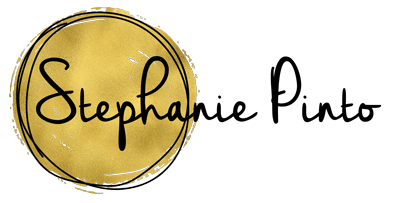Interviewing Michelle Diasinos, Conscious Parent Coach
Please tell us a little about yourself, your background and what space you’re working in at the moment
Hi! My name is Michelle Diasinos and I am a certified parent coach, host of The Conscious Parenthood Podcast and mum to Leo and Eva.
Over the last decade I have worked as a special education teacher and occupational therapist serving children, adolescents, parents and educators in homes and schools. I now work with parents who are ready to dive deep into inner work so that they can heal, reconnect with their children and show up as the calm, grounded parent they crave to be.
My work currently focuses on parents who want to overcome yelling and punishments to create a peace and presence in their homes.
Incredible! Tell us why you were brought into this work? What is its importance to you?
Following the birth of my oldest child, I realised the immense pressure on modern day mothers to raise their children ‘perfectly’ within a culture of judgement and shame with little support and guidance, all while building their career and taking care of the daily in-and-outs of managing their home. I realised the contradictory nature of parenting advice from books, media, social media and our own communities and what a noisy space it was. But I also realised when parents are looking for external validation to guide their parenting choices, they are less likely to listen to their own inner compass, which comes through us in the form of our emotions. When parents are not honouring their emotions, they are positioned poorly to honour the emotions of their children. My mission is to support parents in their journey through healing generational patterns that are standing in the way of them connecting with their children and creating a family and life that is easeful and calm. This is my mission because I truly believe that a peaceful home is where a peaceful world begins.
Your mission is truly special. How does Emotional Intelligence fit into your work and/or your parenting?
Emotional intelligence is a cornerstone of leading a conscious parenthood. A key element of my work is supporting parents to model empathy, hold space for and create emotional safety for their children. Part of this is guiding parents in recognising and regulating their own emotions, so that they can best support their children and cultivate a culture of emotional intelligence in their homes and families.
Absolutely - you hit the nail on the head! Can you share with us a meaningful story from your work with kids?
There were times that I questioned my parenting choices, especially early in motherhood when I was feeling a little shaky in my confidence. But moments like these affirm how powerful this work can be.
When my son was 2 years old, I sat with him and we spoke about the topic of ‘anger’. He has been hitting his baby sister frequently, and I was beginning to struggle with responding in a calm manner.
I drew a little picture of an angry face and asked him the question, “When do you feel angry?” I assumed that I would need to model a few of my own examples, but was surprised to hear him reply, “Eva”.
I probed further. “Why?”
He answered, “I don’t like you to feed Eva. I want you to play with me”.
“What else makes you feel angry?”
“Sleep.”
“Why?”
“I don’t like sleeping! I’m not tired!”
I went on to ask him about my anger.
“When does mummy feel angry?”
“I hit Eva and I don’t go to sleep”.
I was in awe of how early this awareness can begin, and in that moment so grateful that we had chosen this path.
Can you share a tip or piece of advice that you have on how to bring up emotionally intelligent kids?
· Begin with yourself. Identify your own emotions and learn to regulate your own emotions. When you do this, you show your children how to do the same.
· Check in with your expectations. Modeling this will not mean the changes happen overnight, because our children’s brains are still developing.
Accept all of your children’s emotions. Including and especially the ones that are difficult to accept and usually triggering for us – emotions like anger, fear, sadness. Remaining calm and holding space for them when they are experiencing these emotions creates trust and emotional safety for your children.
Thank you for sharing your vision and your insights! Where can people find out more about you and your work?
If this resonates, I’d love for you to join me at:
Website: michellediasinos.com
Podcast: The Conscious Parenthood Podcast (on Apple Podcasts, Spotify & Overcast)
FB page: facebook.com/michelle.diasinos
IG: @michelle.diasinos
Interviewed by Stephanie Pinto.


